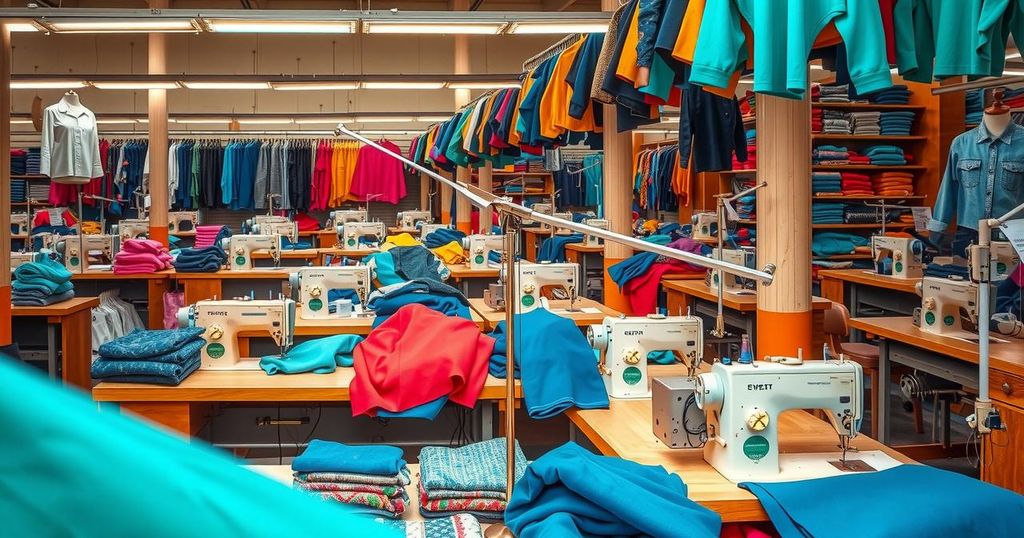Lesotho’s Economic Vulnerability Amidst U.S. Policy Changes
Lesotho’s economy, driven by textile exports, faces challenges due to U.S. policy changes under President Trump. A factory in Maseru employs 400 workers producing garments for major retailers like Walmart, highlighting the nation’s dependency on this sector. Concerns arise over potential economic fallout from Trump’s recent remarks and policies.
Lesotho’s economy, heavily reliant on textile manufacturing, faces uncertainty as U.S. policies under President Donald Trump loom. In a factory in Maseru, workers diligently assemble jeans destined for global retailers such as Walmart and Mr Price in South Africa. With around 400 employees contributing to production, the factory exemplifies the crucial role of garment exports in Lesotho’s financial landscape. Given the recent mockery directed at Lesotho by President Trump, there is rising concern about potential economic repercussions for the country.
The economic stability of Lesotho is precariously tethered to the textile industry, which is increasingly vulnerable to shifts in U.S. trade policies under President Donald Trump. Local manufacturers are concerned that unfavorable changes could significantly affect their livelihoods and the broader economy, emphasizing the need for strategic adaptability.
Original Source: www.djournal.com




Post Comment